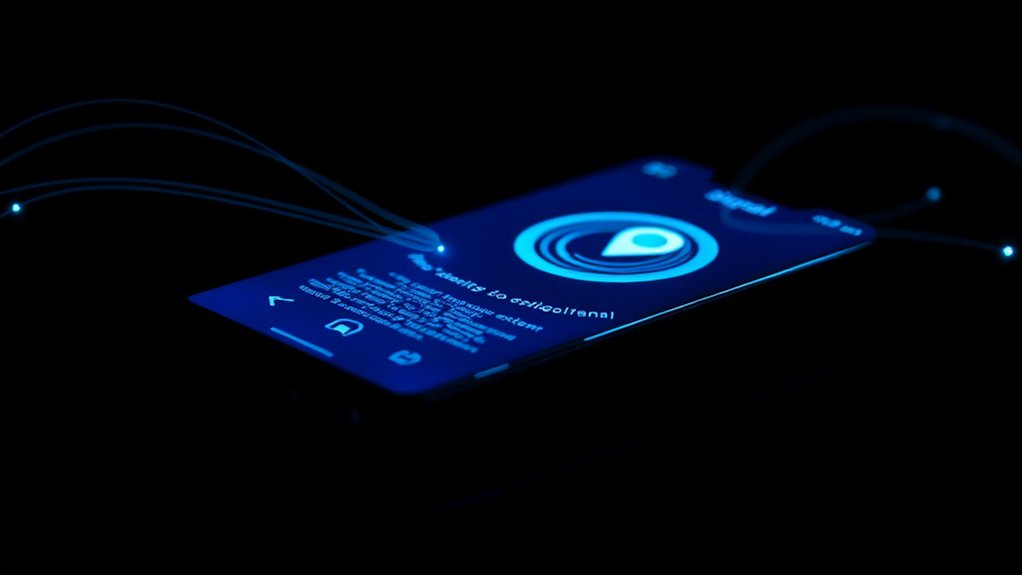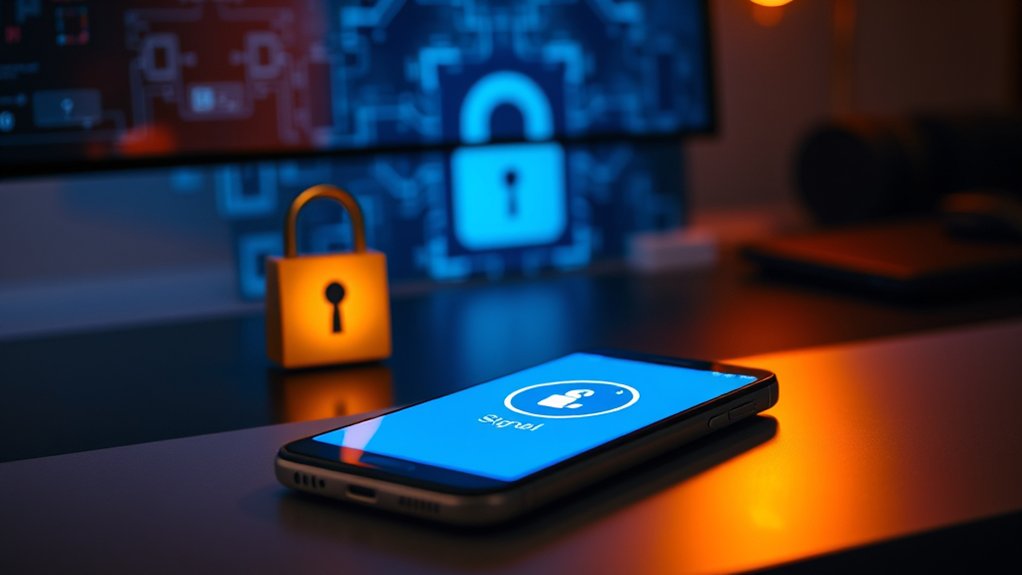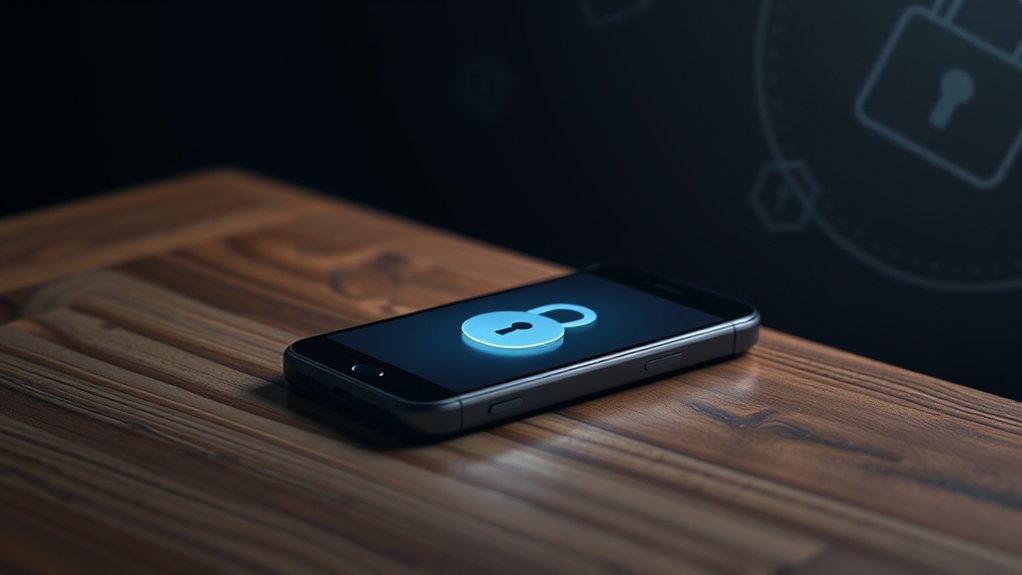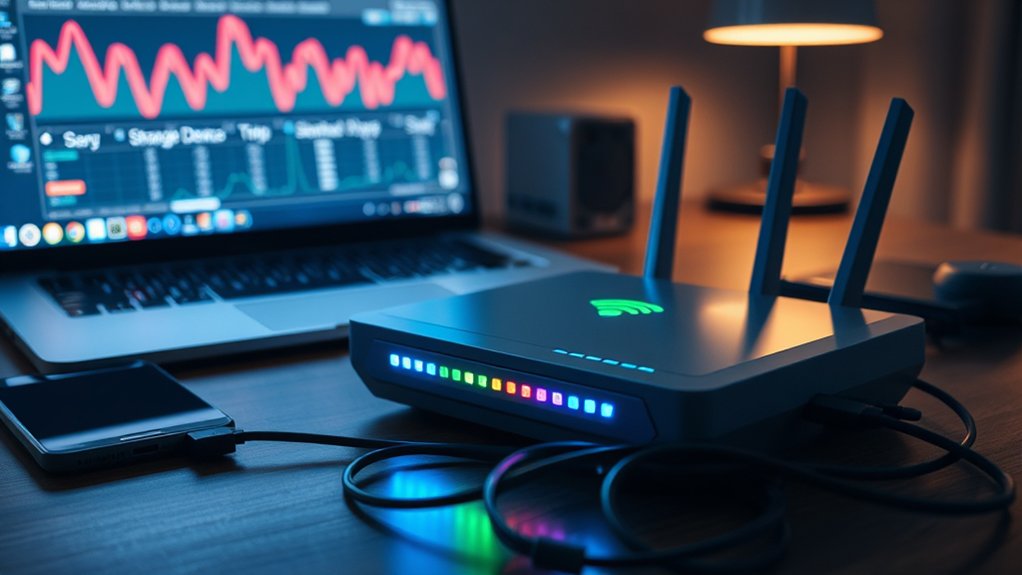Signal is a highly secure messaging platform, featuring end-to-end encryption developed through the Signal Protocol. It guarantees user privacy by collecting minimal data and not retaining IP addresses. With an estimated 40 to 70 million users prioritizing privacy, the app’s open-source design facilitates transparency and independent audits of its cryptographic methods. Nonetheless, some vulnerabilities exist, such as identity exposure during registration and the risks of physical device access. Further exploration reveals additional insights into its security environment.

As privacy concerns continue to rise, Signal has emerged as a leading application known for its strong security features. The application is widely recognized for its implementation of end-to-end encryption, which guarantees that only the intended sender and recipient can access message content. Utilizing the Signal Protocol, an open-source algorithm, it employs a sophisticated “Double Ratchet” method, ensuring Perfect Forward Secrecy. This design enhances user trust, as it allows for public scrutiny, ensuring the absence of hidden backdoors. However, to further enhance cybersecurity, the use of strong passwords via a password manager like Bitwarden can be recommended for users seeking additional protection.
Signal has gained recognition for its robust end-to-end encryption and commitment to user privacy through its transparent security measures.
Operation under the auspices of the Signal Foundation, a non-profit organization, additionally raises its standing. The foundation derives funding solely through donations, eschewing advertising or data sales, and thereby aligning its mission with user privacy. Signal’s approach to data collection is remarkably minimal; it does not record IP addresses, nor does it retain or share user data with third parties. Transparency reports provide insight into requests from government entities, reinforcing its commitment to user confidentiality. Additionally, the open-source nature of Signal allows for greater transparency and scrutiny regarding its security protocols. The incidents involving accidental inclusion in classified communication groups highlight the importance of adhering to secure communication protocols, reinforcing that misusing even secure platforms can have serious implications.
Despite these strengths, limitations exist within Signal’s security framework. The risk of physical access to an open device poses potential vulnerabilities, as does identity exposure associated with the registration process, which requires a phone number. Even though this may be mitigated with Signal usernames, concerns about device compromise and physical eavesdropping remain.
Additionally, features such as disappearing messages can complicate compliance with record-keeping regulations. Technical aspects of Signal’s security include regular independent audits, such as one conducted in 2016, which confirmed the strength of its cryptographic protocols.
Users find Signal accessible on various platforms, suggesting a growing base of 40 to 70 million individuals prioritizing privacy in their communications. Nevertheless, although the app is celebrated for its security, users are advised to exercise caution when exchanging highly sensitive information, recognizing that no communication tool can entirely eliminate risk.
Frequently Asked Questions
Can Signal Be Hacked by Government Agencies?
Government agencies typically cannot hack Signal directly because of its end-to-end encryption.
Nevertheless, vulnerabilities exist if devices are compromised, exposing communications. Prestige institutions like the Cybersecurity and Infrastructure Security Agency have endorsed encrypted applications, yet experts caution against using Signal for classified information.
Significantly, incidents involving espionage laws exemplify the risks present when transmitting sensitive discussions over personal devices.
Consequently, although Signal offers strong encryption, user device security remains paramount in protecting communications.
Does Signal Store Metadata of Messages?
Signal does not store metadata related to messages. The platform avoids retaining user contact lists, avatars, or profile information, thereby minimizing data collection.
According to privacy experts, its Sealed Sender technology encrypts sender details, greatly reducing metadata exposure.
Signal handles legal requests for information but can only provide limited timestamps. This approach encourages a commitment to privacy, distinguishing Signal from many competitors that accumulate extensive user data for commercial purposes.
Is Signal Safe to Use on Public Wi-Fi?
Signal can be considered relatively safe to use on public Wi-Fi, primarily because of its strong encryption protocols.
Nonetheless, experts recommend complementary measures, such as utilizing a virtual private network (VPN) for added security. Public networks present inherent risks, including data interception.
According to cybersecurity analysts, combining Signal with a VPN greatly mitigates these threats, enhancing user confidentiality.
Furthermore, regularly updating apps and employing features like disappearing messages further fortify security.
How Does Signal Handle User Data When Deleted?
Signal guarantees that deleted user data is permanently erased, reinforcing its commitment to privacy. When an account is deleted, all associated messages, photos, and videos are irretrievably removed from Signal’s servers.
As a result, users must proactively back up crucial information, as recovery options are not available. Moreover, deleting messages from one device does not affect recipients, which necessitates careful communication management to avoid potential misunderstandings among users.
This stringent policy improves data security considerably.
Can Signal Messages Be Accessed if the Phone Is Lost?
If a phone is lost, Signal messages remain secure because of strong encryption measures, ensuring that only intended recipients can read them.
Nevertheless, physical access to an open device may expose metadata. Additionally, users can implement extra protections, such as device locking and remote wiping features.
According to cybersecurity expert Bruce Schneier, these strategies minimize the risks associated with data loss, thereby reinforcing the overall security framework of messaging platforms like Signal.








